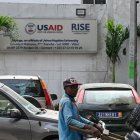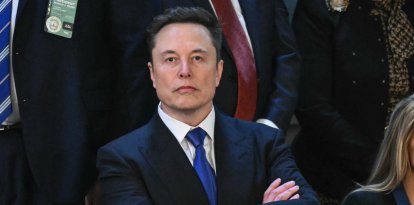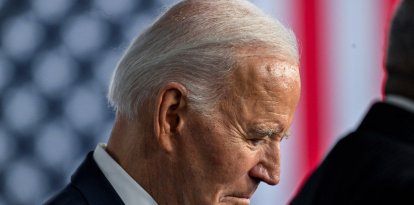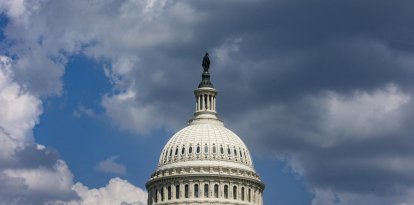Rubio puts an end to USAID: 'Assistance programs will be administered by the State Department'
The Secretary of State confirmed that as of July 1, the country's international aid policy will prioritize accountability and strategy, eliminating the previous model of managing public funds.
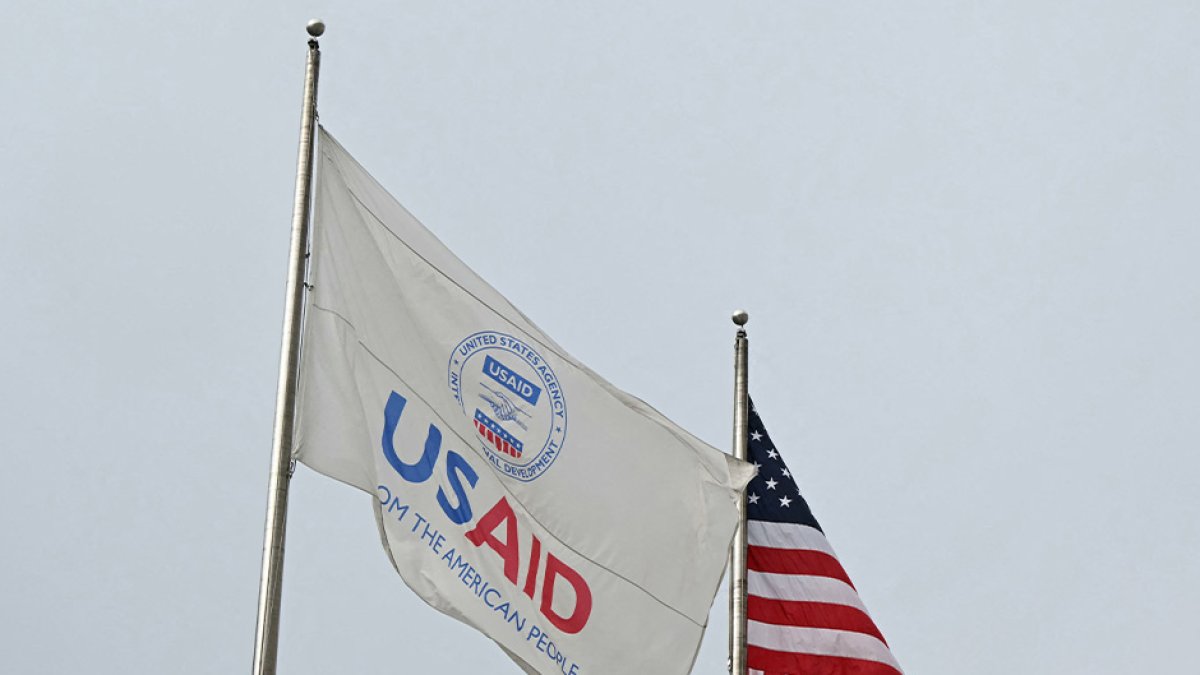
USAID flag next to an American flag.
This Tuesday, Secretary of State Marco Rubio stated that "this era of government-sanctioned inefficiency has officially come to an end." Thus he announced the definitive closure of the United States Agency for International Development (USAID) as the executor of foreign assistance, through a column published on the secretary of state's Substack.
Rubio maintained that, as of July 1, the country's international aid policy will undergo a radical change, with the transfer of the administration of foreign assistance programs to the State Department, under criteria of greater responsibility, strategy and efficiency.
"As of July 1st, USAID will officially cease to implement foreign assistance. Foreign assistance programs that align with administration policies—and which advance American interests—will be administered by the State Department, where they will be delivered with more accountability, strategy, and efficiency," the Secretary specified in the post.
Publicly funded programs must benefit national interests
Rubio argued that every public servant has the obligation to ensure that publicly funded programs benefit national interests. According to him, during the exhaustive review of thousands of programs and more than $715 billion in inflation-adjusted expenditures over decades, conducted under the Trump administration, it became evident that USAID did not meet this standard.
Rubio also noted that the agency had decades and a nearly unlimited taxpayer budget to promote American influence, foster global economic development and enable billions of people to achieve self-sufficiency. However, in his view, the results have been unsatisfactory.
In the lengthy column, the former senator argued that, beyond the creation of a "globe-spanning NGO industrial complex at taxpayer expense," USAID has little to show for itself since the end of the Cold War.
"Development objectives have rarely been met, instability has often worsened, and anti-American sentiment has only grown," he noted.
">This is a historic day for American foreign policy. USAID viewed itself as serving the int’l humanitarian community—not the American people or taxpayers. Its failed model resulted in waste, dependency & the erosion of US global influence.
— DOGE State (@DOGE_STATE) July 1, 2025
That ends today. Under @POTUS and… https://t.co/2ai3scgWly
"The only ones living well were the executives of the countless NGOs"
Moreover, he stressed that the countries that benefit most from U.S. largesse often fail to reciprocate. As an example, he cited that in 2023, sub-Saharan African nations voted with the U.S. only 29% of the time on essential U.N. resolutions, despite receiving $165 billion in investments since 1991. "That's the lowest rate in the world," he referred.
In the same period, the secretary quoted again, more than $89 billion were invested in the Middle East and North Africa, leaving the U.S. with lower favorability ratings than China in all countries except Morocco.
The head of U.S. diplomacy remarked in the statement that "the only ones living well were the executives of the countless NGOs, who often enjoyed five-star lifestyles funded by American taxpayers, while those they purported to help fell further behind."
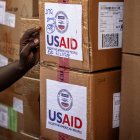
Politics
A USAID official and three contractors pleaded guilty to a $550 million bribery scheme
Joaquín Núñez
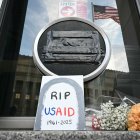
Assistance will be "targeted and time limited"
In his analysis, Rubio stressed that USAID presented its programs as works of charity, rather than instruments of U.S. foreign policy intended to advance national interests.
According to State Department research, the majority view in countries that formerly received USAID funds is that they prefer trade to aid.
Rubio said Americans should not have to pay taxes to fund failed governments in faraway places. Under his helm, and going forward, assistance will be "targeted and time limited," and that those countries that have demonstrated both the ability and willingness to help themselves will be favored.
In addition, resources will be directed to areas where they can have a multiplier effect and catalyze lasting investments from the private sector, including American companies, and global funds.
Priority: Trade over aid and investment over assistance
In the paper, Rubio argued that this model will also put the country in a stronger position to counter China's "exploitative" aid model and advance U.S. strategic interests in key regions of the world.
He concluded that the new policy will prioritize trade over aid, opportunity over dependence, and investment over assistance. According to Rubio, for Americans and many around the world, July 1 will usher in a new era of global partnership, peace, investment and prosperity.
USAID and its downfall
Then, on March 10, it announced that 83% of the programs managed by USAID would be cancelled, with thousands of agency employees already laid off under the order of the Department of Government Efficiency (DOGE), then managed by billionaire Elon Musk.
This Monday, a new study coordinated by researchers from several countries was published in The Lancet. It affirmed that cuts made at the start of 2025 by the administration on USAID, as well as its possible total dismantling, would cause more than 14 million additional deaths by 2030.
Over the past two decades, this agency has helped prevent more than 91 million deaths worldwide, 35 million of them children, the study reveals.





